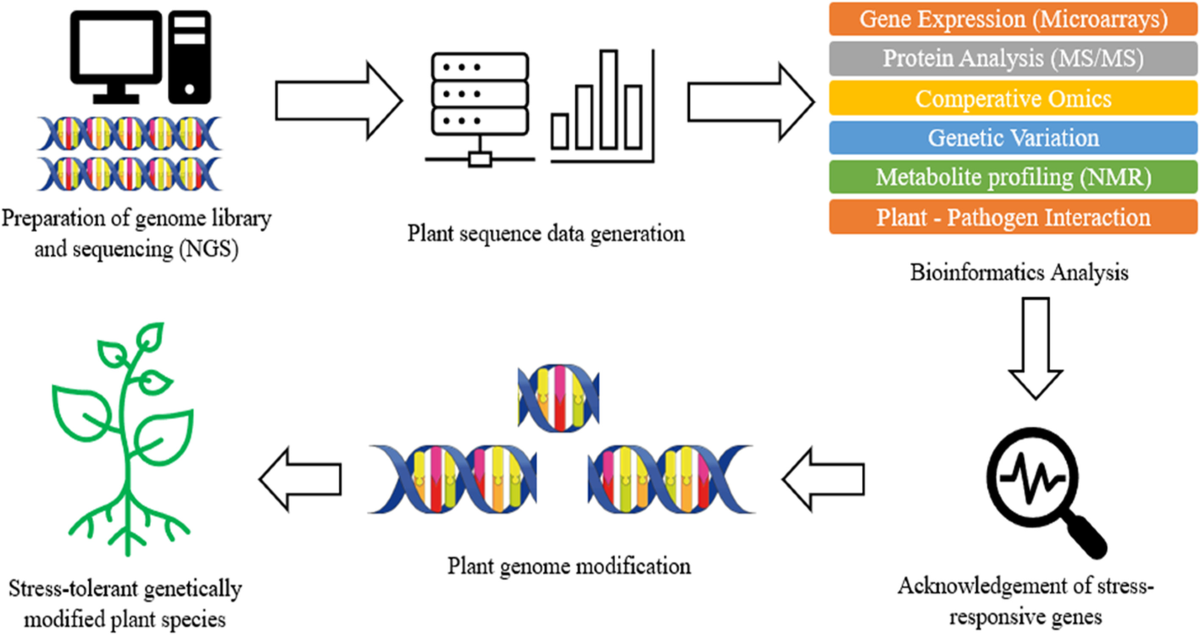Things about Bioinformatics Tutor
Things about Bioinformatics Tutor
Blog Article
The Ultimate Guide To Bioinformatics Tutor
Table of ContentsSome Of Bioinformatics TutorThe Bioinformatics Tutor DiariesSome Known Questions About Bioinformatics Tutor.The 6-Minute Rule for Bioinformatics TutorThe Facts About Bioinformatics Tutor Uncovered
Of the overall participants associated with the training, 80% were pupils from public greater education organizations, while the continuing to be 20% came from private institutions. To receive a certificate of participation, pupils were needed to participate in at least 90% of the total training hours. As a result of this demand, a remarkable 95% of the individuals effectively obtained their certificates, having not just satisfied the minimum attendance criteria however also finished all assigned activities throughout the training.
Throughout the elevation of the COVID-19 pandemic, specifically in between June and August 2020, the task team was tasked with arranging specialized training in bioinformatics. This training was especially targeted at trainees from the research study group Center for Research in Applied Computer at the Federal University of Pará (UFRA) The adaptation to remote learning platforms due to the pandemic created an opportunity to explore brand-new training approaches and electronic devices that boosted both reach and performance.
This course was designed to supply an accessible yet detailed summary of Artificial Knowledge techniques, specifically as applied in bioinformatics (Bioinformatics Tutor). This virtual style enabled engagement from students throughout Brazil, numerous of whom might not have had the possibility to participate in in-person sessions.
Bioinformatics Tutor for Dummies
About 50% of the total training hours were dedicated to practical tasks where trainees built smart designs and applications in a variety of scientific domain names, including genes, molecular biology, and ecological data analysis. These platforms made it possible for pupils to engage in real-time data manipulation, model training, and formula experimentation.
Sixty of them were associated with various greater education and learning institutions in the state of Pará, while the staying twenty came from organizations found in 5 various other Brazilian states. By introducing Artificial Knowledge in a functional and appropriate context, the campaign offered to connect the gap in between theory and real-world application, giving students with a strong structure for future research or employment in the area.
The training effort created component of a wider academic outreach effort referred to as the Bioinformatics when driving project. This project has, for many years, presented lots of trainees to the globe of bioinformatics and computational biology. The events held under this umbrella effort have actually taken location across numerous areas and years, as summarized in Table 1 (Listing of occasions, areas, years, and overall numbers of trainees and trainers)
Several of these groups, originally brought with each other by their participation in training events, have considering that gone on to create independent clinical research in cooperation with local academic organizations. The training not just fostered clinical reasoning within the context of bioinformatics but additionally stimulated joint relationships that prolonged past the training environment.
Excitement About Bioinformatics Tutor
The same team, excluding IH and RR, also acted as you can find out more tutors for the sensible training modules. Funding for the task was provided through the give 88887.200562/ 2018-00 from CAPES.
The Federal University of Pará's Workplace of Study (PROPESP/UFPA) also provided monetary support, specifically for the production of the final manuscript. The writers proclaim no monetary or industrial conflicts of passion that might have influenced the research study. All viewpoints and interpretations revealed in this write-up are solely those of the authors and do not always reflect those of their corresponding institutions, the publisher, editors, or reviewers involved in the publication procedure.

What Does Bioinformatics Tutor Mean?
From a pedagogical perspective, the mentor technique used in the training was intentionally interactive. Courses were conducted in a manner that urged student participation and conversation, surpassing memorizing memorization to explore exactly how concepts are established, applied in every day life, and examined in academic setups. The training ideology concentrated on supporting both strong and having a check this hard time trainees, offering individualized assistance, and structure self-confidence through sustained mentorship and patience.

Each group, being composed of roughly 36 individuals, was sustained by three advisors-- most of whom were postdoctoral scientists with specialized know-how. These mentors not only helped create the group tasks however likewise facilitated their implementation, making sure that each research study inquiry was both appropriately tough and appropriate. The objective was to provide a biologically reasonable context that individuals can discover via flexible goals and accessibility to curated datasets.
For extra insights right into the method and results of this project-based understanding technique, visitors are routed to S1 Text, which includes in-depth descriptions of the pedagogical framework, evaluation methods, and project motifs utilized in the training sessions.
The Best Strategy To Use For Bioinformatics Tutor
Of the overall individuals involved in the training, 80% were students from public higher education and learning institutions, while the remaining 20% came from private establishments. To qualify for a certificate of involvement, trainees were required to attend at the very least 90% of the overall training hours. Notably, past the pupils who enrolled in the training sessions, seven knowledgeable teachers got involved in providing the courses, while 3 dedicated research professors collaborated the total training process. About 50% of the complete training hours were dedicated to practical activities where students constructed intelligent models and applications in a variety of a knockout post scientific domain names, consisting of genes, molecular biology, and ecological data evaluation. The training not only fostered scientific thinking within the context of bioinformatics yet likewise stimulated collective connections that extended past the training atmosphere.
Report this page